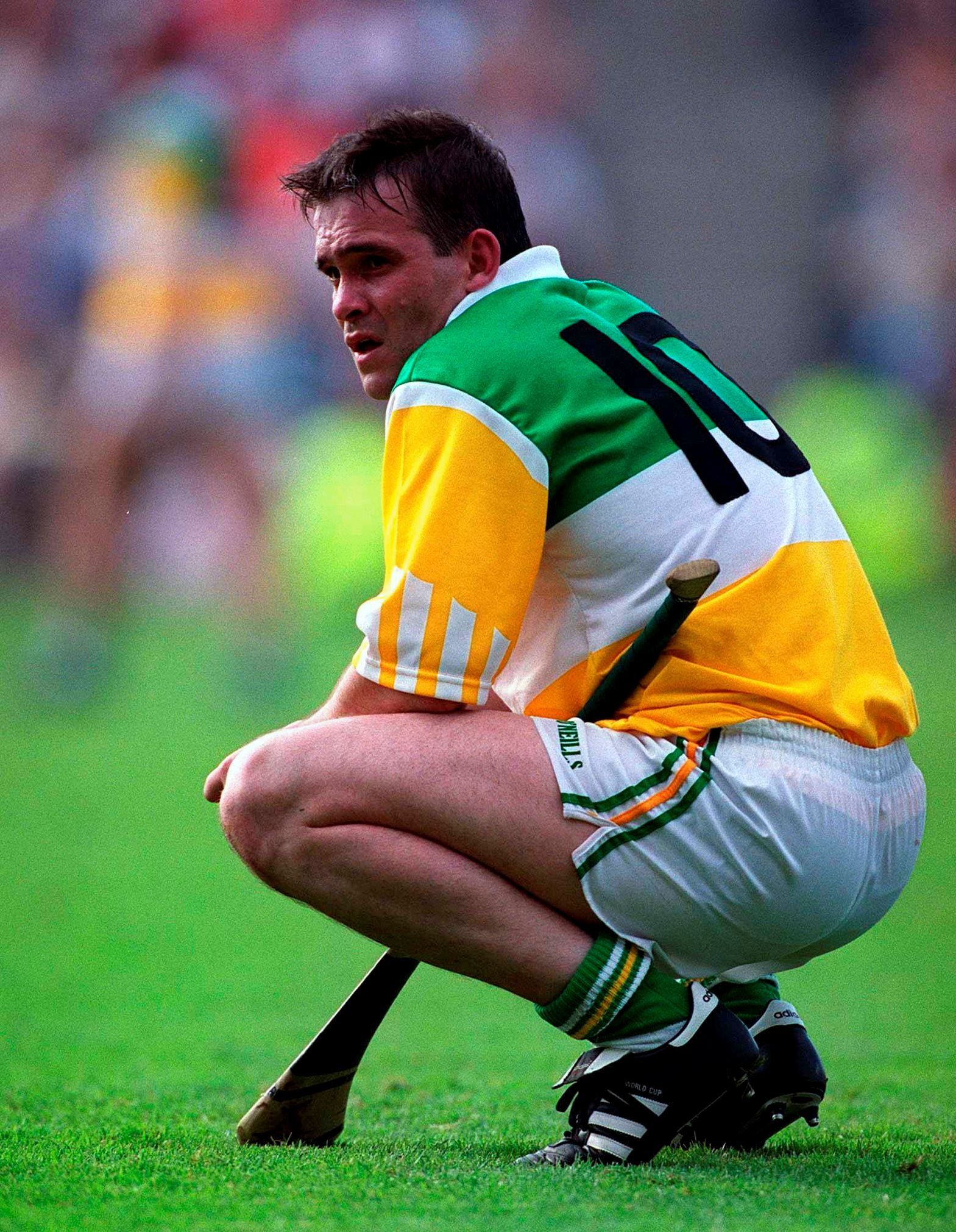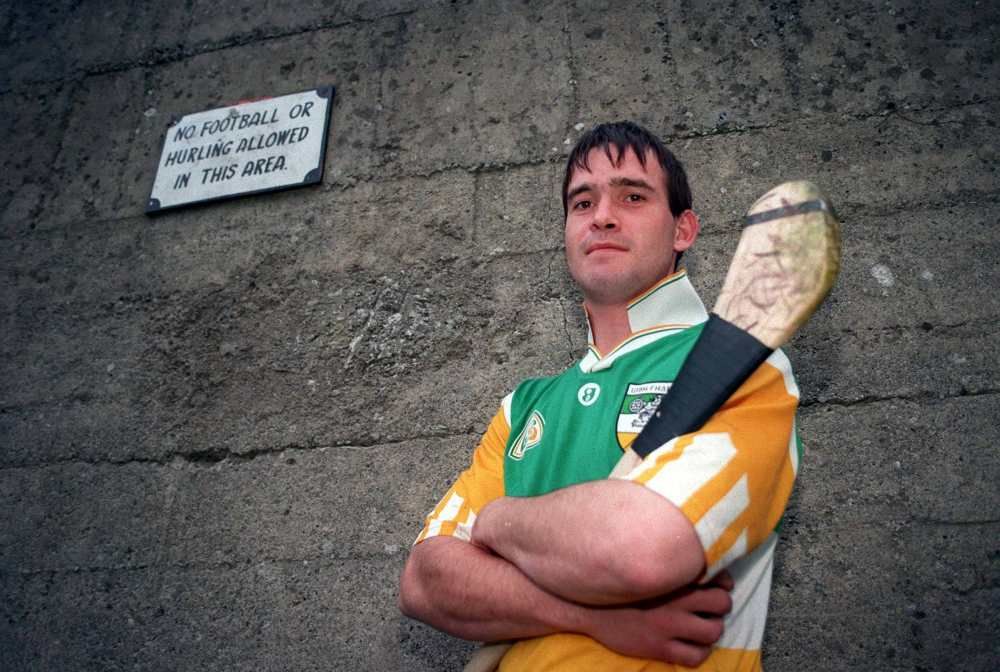

Share
2nd February 2021
09:46am GMT

"I probably drink a little bit more than I should. Too much for intercounty hurling. Maybe 16, 17 pints a week, but there is a limit."Thank God for the limit. As regards a sense of humour, Johnny has never been found wanting. The exchange with Ger Canning below was just another classic on a long list, when the maverick was asked what would it mean for Offaly to win the 1994 All-Ireland - a hell of a lot of drinking said Johnny. And you'd imagine a hell of a lot of drinking was done. https://twitter.com/GAA__JOE/status/1356194599396638726 Much truth in the miraculous image? Sometimes a sense of humour is just that. What we must account for is that there was once a time, long before social media, when players would have the craic and would actually joke away with reporters without fear of a wrap on the knuckles and without fear of becoming an internet sensation. Bar stool talk as they call it, some of it accurate, some of it far-fetched. Watch the Ger Canning interview for the bar stool-talk, but if it's the truth you're looking for, you can listen to Pat Fleury. "Any day Johnny Pilkington went out on the field," says Pat on Thursday's Laochra Gael tribute show, "he left everything he had in his body out there." That's the real Johnny Pilkington. We're chatting to Johnny of a 2021 Sunday night and we're talking caricatures and Laochra Gael. For a second, he comes close to admitting he went on the show to dispel some of the myths with which he's forever been associated, but soon bodyswerves, in true Johnny Pilkington style. "The documentary itself would look at probably the amount of hurling that I did do. So maybe people would say, ‘he was maybe a bit better than we took him for,’ you know. So hopefully they show all the good parts in it. But again, I suppose it wasn’t really anything to show anything or to prove to anyone about my hurling. I took my hurling as I did and people know me on that." Who has Johnny anything to prove to? "Anyone that has played at inter-county level knows their hurling anyway, so you’re not going to go out there as such if everything is a party lifestyle or anything like that, so hopefully it comes across there as well. To play in the games we played in and to play as long as we did, you’re just not going to do that with the supposed social life."
 Nor would you be the fittest, toughest and most athletic runner in the country's best team if you were just going through the motions.
Soon it becomes apparent that Johnny's hurling, his commitment and his drive was undermined by people taking his irony too seriously. In fact, this notion that his Offaly wouldn't have survived in this more professional age is the only way you'll rub him wrong.
Nor would you be the fittest, toughest and most athletic runner in the country's best team if you were just going through the motions.
Soon it becomes apparent that Johnny's hurling, his commitment and his drive was undermined by people taking his irony too seriously. In fact, this notion that his Offaly wouldn't have survived in this more professional age is the only way you'll rub him wrong.
‘We were asked to train two or three times a week so we trained two or three times a week. If we were asked to train seven times a week we’d do it.’ So you’d have no problems having the commitment."“I suppose what was a bit unique about it, we had a laid back kind of an attitude in a way. If you take a look at the ‘94 All-Ireland and you see Offaly running out onto the field, it seems as if the first lad comes out fast and the others just jog out one after another and Limerick are sprinting out into it but we had some kind of laid back characters but once it comes to training, once it comes to the matches, that was really all that was important." There you have it. A deep-thinking character, Johnny has his own views on the modern game. "The games themselves are in the whole really a bit boring. What you do have to realise is that all those big scores are coming and there is no-one marking. The thing about it is, the next winning manager is going to have it there that we’ll be defensive. To concede 27 points in a game is just madness. To concede 20 points in a game is madness really. I’d just like to see a little bit more marking. I’d like to see less of these lads with acres of space, 20 or 30 yards, and no-one on them, tapping the ball over the bar. "It’s more of a kind of a tactical thing from managers rather than actually even changing the rules of the game. Like it is fine. It’s only 10 years ago you had Kilkenny and Tipperary in two fabulous All-Irelands and they did put in big scores. But all those players were under pressure when they were getting their strike off and scoring, and they were marvellous matches. Whereas the last number of matches it’s just a bit too open. It’s like playing ball in the Phoenix Park rather than Croke Park.”
 As for the management, Johnny did it and loved it.
“If the opportunity arises again and the mind is saying, ‘I am going to give this a hell of a go,’ then yeah, you’d love to be on a sideline. I like being on a sideline.
"You are over 15, having to see if the game is going wrong, trying to pull it out of the fire, tweak it here and tweak it there. More than anything I loved looking at the lads running around a field and their tongues hanging out when I was there nicely wrapped up in a warm coat!"
Never change Johnny. We'll leave the last word to Michael Duignan.
"The real Johnny Pilkington is one of the most serious hurling men I've ever come across."
Because really, that was all that mattered.
As for the management, Johnny did it and loved it.
“If the opportunity arises again and the mind is saying, ‘I am going to give this a hell of a go,’ then yeah, you’d love to be on a sideline. I like being on a sideline.
"You are over 15, having to see if the game is going wrong, trying to pull it out of the fire, tweak it here and tweak it there. More than anything I loved looking at the lads running around a field and their tongues hanging out when I was there nicely wrapped up in a warm coat!"
Never change Johnny. We'll leave the last word to Michael Duignan.
"The real Johnny Pilkington is one of the most serious hurling men I've ever come across."
Because really, that was all that mattered.Explore more on these topics: